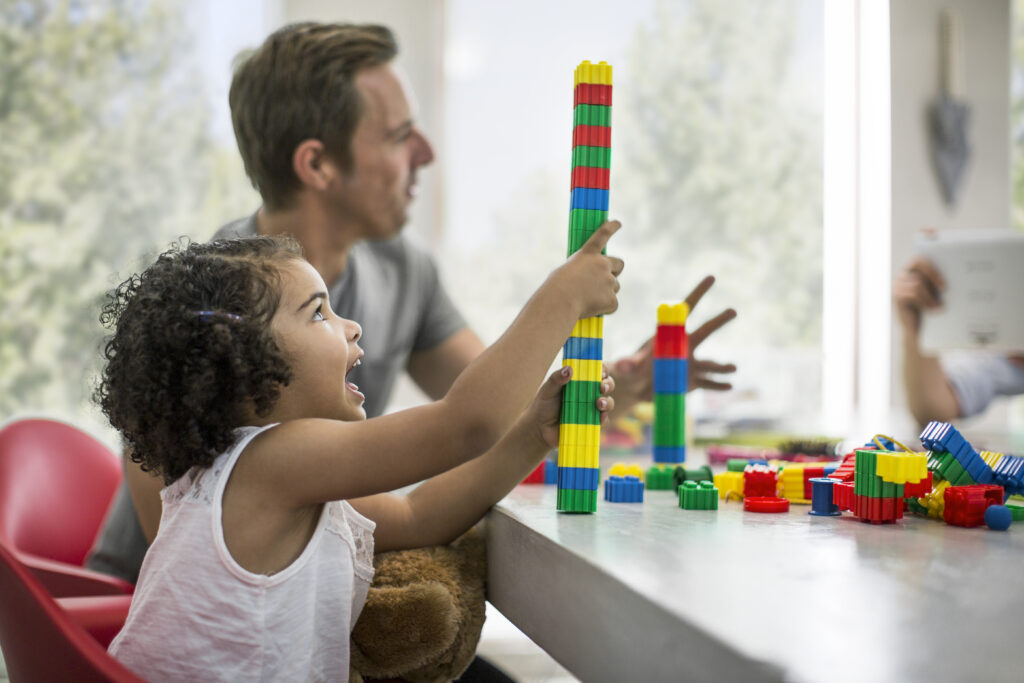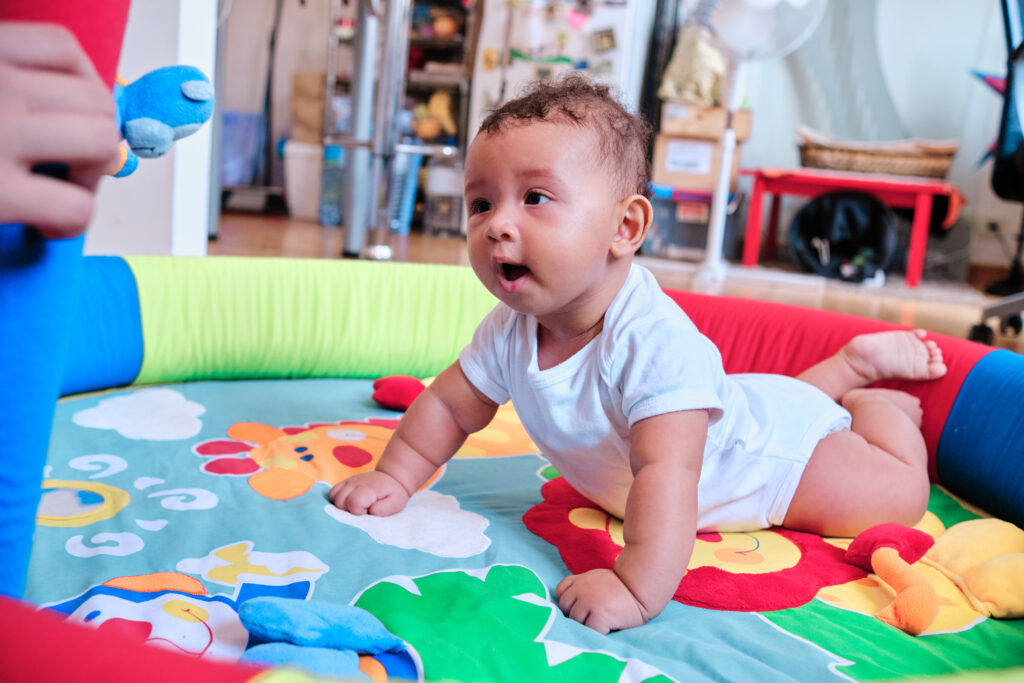
- +61 1300 704 750
- admin@parentinggenie.com.au
- PO Box 706, Townsville, QLD 4810

Parenting is a beautiful road with many turning points and memorable events. Every period of a child’s life has unique chances to support their cognitive, emotional, and physical growth. Boosting Child Development!
Deliberate, age-appropriate activities can greatly improve your child’s development and form the basis for a bright future. This blog looks at easy, interesting approaches to supporting children’s whole development.
Children’s physical development involves improving their fine motor skills—using tiny muscles like fingers and toes. Then gross motor skills using large muscles like arms and legs. It’s also about encouraging general movement-based fitness and wellness.
Tummy time is vital for babies. It strengthens their shoulder, back, and neck muscles for milestones such as rolling over, crawling, and sitting up. Set colorful toys or mirrors in front of your infant to keep them interested and make stomach time entertaining. Start with small sessions and progressively extend the time as your baby settles in.
Toddlers could find great excitement in building an obstacle course at home to hone their gross motor abilities. Set-up tasks include crawling, jumping, or climbing using pillows, hula hoops, or boxes. As students negotiate the course, this exercise improves their problem-solving ability and physical power.
Sending your child to the backyard or park promotes natural mobility, including climbing, leaping, and running. Simple nature exploration, tricycle riding, and catch games all help them strengthen their muscles and increase coordination. These outside activities also release pent-up energy, which facilitates children’s later concentration.
Dancing is an excellent approach to boosting creativity and physical fitness. Turn on some music and let your youngster move in time. This exercise increases flexibility, coordination, and balance. Besides, it’s a great family bonding event overall!
Emotional development guides children toward awareness of, comprehension of, and expressing their emotions. It also covers imparting resilience and sensitivity to them.
Either create or buy emotion cards with varying facial expressions. Show your child a card and have them name the feeling or copy the expression. This exercise prepares them for emotional intelligence by helping them recognize and interpret emotions.
One effective approach to fostering empathy is reading literature on emotions. Select stories that explore emotions and probe your child with questions. Questions like, “How do you think the character feels?” or “What would you do in this situation?” This helps children to consider feelings from several angles.
Journaling is a valuable tool for school-age kids in emotional processing. Writing or drawing about their daily activities helps children concentrate on their feelings during particular occasions. With time, this technique enables children to communicate their feelings and find a suitable means of self-expression.
Role-playing can develop empathy and help children better understand social circumstances. Play out events like “sharing toys” or “comforting a sad friend.” Lead them through suitable responses and impart kindness and cooperation in an entertaining and participatory manner.

Cognitive development is mostly concerned with enhancing a child’s memory, problem-solving, and reasoning ability. Participating in interesting events that challenge the brain will help children find learning fun and efficient.
Though it seems essential, peek-a-boo is a significant cognitive workout for young children. It presents the idea of object permanence—the knowledge that items exist even when they are invisible. The element of surprise causes their giggles while learning! Family members can join, too.
Like grouping blocks by color or shape, sorting activities help children classify and spot trends. Sort a range of objects and let them explore. This exercise helps them improve their analytical abilities and observation.
Age-appropriate puzzles improve problem-solving. They push kids to be critical thinkers and tenacious through mistakes. Start with easier problems and progressively raise the challenge as their ability grows.
Introduce simple science projects, such as building a volcano out of baking soda and vinegar or tracking plant development. These practical exercises inspire inquiry and a passion for learning, hence building the basis of scientific thought.
Many events coincide to encourage progress in several spheres at once. As a result:
One amazing approach to combining cognitive, emotional, and physical growth is cooking. Measuring ingredients calls for arithmetic ability; stirring enhances fine motor control; and talking about the recipe promotes communication and teamwork. Cooking also presents a chance for bonding and lifelong memory creation.
Using building blocks teaches fundamental engineering ideas, enhances fine motor abilities, and stimulates creativity. Praise your child’s efforts and talk about their work as they build towers or other constructions to help with confidence and communication abilities.
Imaginal play promotes emotional awareness, problem-solving, and fine motor skills like organising a pretend grocery store or hospital. It also lets kids investigate many roles and situations, enhancing their social awareness and creative ability.
To help your child grow, you don’t need costly toys or complex setups.
Every day events present several chances for development:
The secret is constancy and readiness to participate in your child’s world. Every interaction presents a chance to help them realize their own.
Every child grows at their own speed; hence, it’s essential to appreciate advancement instead of stressing just about perfection. Fun and meaningful activities help your child grow in ability and depth of connection as a family.
Parenting is about loving and intentional guidance of your child. Including exercises that advance cognitive, emotional, and physical development helps you create the conditions for a lifetime of happiness and success.
Parenting Genie has comprehensive resources from pregnancy to raising 5-year-olds for a smoother journey. Genie Chat, and Parenting Live Expert are available 24/7 to provide instant parenting answers.
You can also book a Zoom or Telehealth consultation with a maternal and child health nurse or certified lactation consultation.
The Raising Children website has more tips and insights on boosting child development.